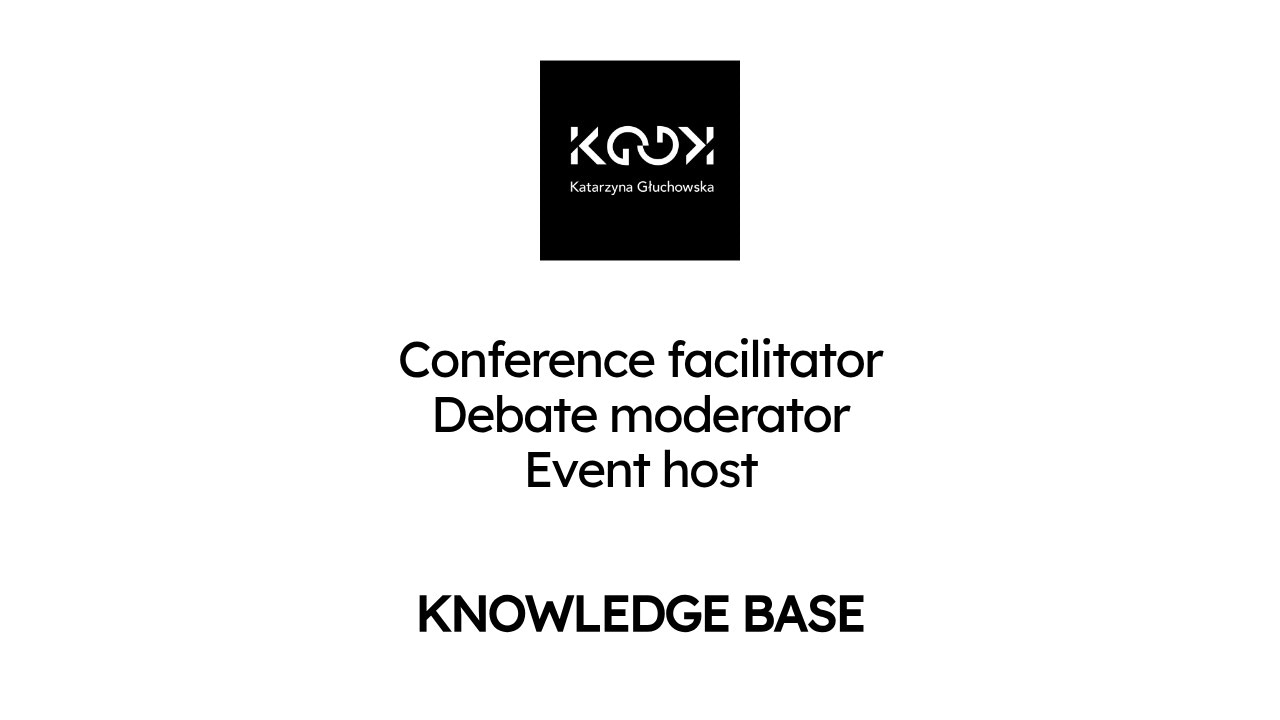Table of contents:
The Importance of Professional Conference Interpreting for International Communication
In today’s global world, where the borders between countries are increasingly fluid, corporate translation and interpreting for international organisations in foreign languages play a key role in ensuring effective, efficient communication. At conferences, congresses or international debates, professional conference interpreting not only enables participants to understand the words being spoken, but also conveys the cultural and contextual nuances that are crucial in international communication.
Professional conference interpreters such as Katarzyna Głuchowska provide top-level simultaneous and consecutive interpreting, which is indispensable on the international stage. Their skills allow for the seamless rendering of speeches where every detail matters. Without effective interpreting, participants could miss key arguments or misinterpret information, potentially leading to misunderstandings or conflict.
Cultural adaptation and mastery of specialist language are just as important as linguistic fluency itself. Interpreters like Katarzyna Głuchowska, who have experience in moderating debates and emceeing events, understand perfectly the specifics of working at the intersection of different languages and cultures. As a result, they can accurately convey not only the words but also the speakers’ intentions—essential for true understanding at the international level.
In short, professional conference interpreting opens the door to better understanding and international cooperation, thereby helping to build lasting relationships and effective communication among different nationalities and cultures.
Debate and Event Moderation: The Key to an Impactful Message for Global Companies
When it comes to effective communication in the vast realm of global business, professional debate moderation and event facilitation play a pivotal role. Well-managed events can significantly influence a company’s image, showcasing its professionalism and international outlook. The person at the helm—such as Katarzyna Głuchowska—must demonstrate not only expertise in simultaneous and consecutive interpreting, but also the ability to manage discussions, balance diverse viewpoints and command complex topics such as geopolitics or business innovation.
Organising and moderating debates, where knowledge of foreign languages and diplomatic protocol is vital, requires more than technical perfection; it demands deep cultural understanding. Emceeing international congresses, expert panels and business conferences in two languages underscores the importance of intercultural communication in today’s global business landscape. Thanks to her skills and experience, Katarzyna Głuchowska adeptly navigates different cultures and value systems—an invaluable asset when debates tackle multifaceted, complex topics.
Corporate translation and interpreting for international organisations in foreign languages are indispensable elements of global debates that require not only flawless language skills but also the ability to react quickly and adapt to a dynamic conversational context. The high-level moderation provided by Katarzyna Głuchowska guarantees that every discussion is not only clearly understood but also effectively leveraged to build dialogue—an essential foundation for successful cooperation within international organisations.
The blend of linguistic and cultural expertise in moderation and interpreting determines the strength of the message and the effectiveness of international communication—key components of success in the global business environment.
How to Choose an Interpreter for International Organisations and Events?
When selecting a conference interpreter for international organisations and events, it is essential to pay attention to several factors that ensure smooth communication and professional service. First and foremost, look for someone with the appropriate credentials and certifications that confirm their competence in simultaneous and consecutive interpreting. Examples include holding a European Masters in Conference Interpreting (EMCI) diploma or sworn translator qualifications.
An interpreter should also possess a deep understanding of the cultural context and the language used in organisations such as the UN, NATO or the European Union. Equally important is knowledge of specialised terminology needed to convey content precisely in fields such as geopolitics, new technologies or energy transition.
Experience in moderating debates and hosting conferences is an added advantage and an integral part of an interpreter’s role at large international events. Professionals like Katarzyna Głuchowska, who have collaborated with major organisations and institutions, not only deliver high-quality interpreting but also excel at stage management and audience interaction.
Logistics matter just as much—choose interpreters who can also help organise technical infrastructure, such as renting interpreting booths, sound systems or providing technical support. Such comprehensive service ensures that every linguistic aspect of the event is handled professionally.
In summary, the key to selecting the right interpreter for international events lies in considering their qualifications, experience, organisational skills and ability to deliver full technical support. Only then can you be sure that the event will run smoothly and meet the expectations of organisers and participants from around the world.
If you would like to learn more, click here: https://katarzynagluchowska.pl/en/
